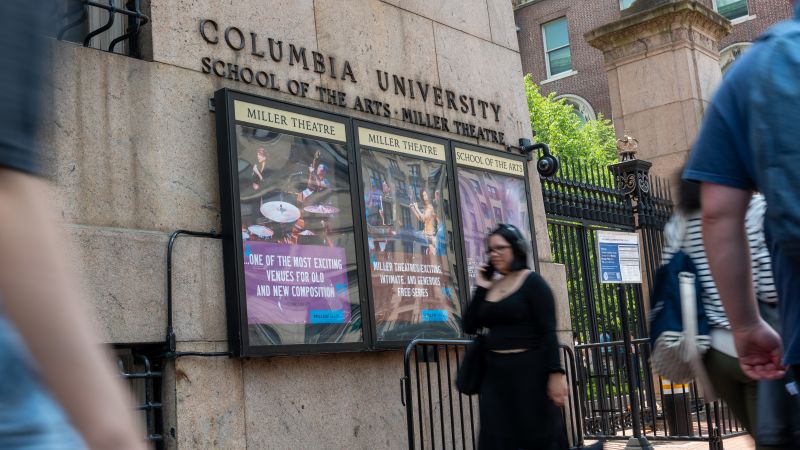Elise Stefanik: Columbia University President's Statements May Violate Civil Rights Act

New York, NY – Representative Elise Stefanik, Chairwoman of the House Republican Leadership, is raising serious concerns regarding the statements made by Columbia University’s president, alleging they potentially violate the Civil Rights Act. Stefanik’s criticism centers on past remarks where the president reportedly advocated for the inclusion of an Arab individual on the university’s board, sparking a debate about diversity, equity, and potential discriminatory practices.
The controversy stems from concerns that prioritizing candidates based on ethnicity or national origin, rather than qualifications and merit, could be a breach of federal law. The Civil Rights Act of 1964 explicitly prohibits discrimination based on race, color, religion, sex, or national origin. Stefanik argues that the president's suggestion raises questions about whether Columbia University is adhering to these crucial legal protections.
“The principles of fairness and equal opportunity are bedrock tenets of American society,” Stefanik stated in a recent press release. “Universities should be evaluating candidates based on their skills, experience, and commitment to academic excellence, not their ethnicity or background. Any suggestion to the contrary is deeply concerning and warrants a thorough investigation.”
This criticism comes at a time of heightened scrutiny surrounding diversity, equity, and inclusion (DEI) initiatives in higher education. While many support the goal of creating diverse and inclusive environments, some worry that these efforts may inadvertently lead to reverse discrimination or compromise meritocratic principles. Stefanik’s challenge to Columbia’s president taps into this broader debate.
Columbia University has yet to release a formal statement addressing Stefanik’s accusations. However, sources within the university suggest that the president’s comments were taken out of context and were intended to highlight the importance of diverse perspectives within the institution. They emphasized the university’s commitment to upholding the Civil Rights Act and ensuring equal opportunities for all.
The situation is likely to draw further attention from lawmakers and civil rights groups, potentially leading to increased oversight of Columbia University and other institutions of higher learning. The case highlights the complexities of navigating diversity and inclusion while upholding legal and ethical standards. The legal implications of prioritizing ethnicity in hiring and admissions processes remain a contentious issue, and Stefanik’s challenge is sure to fuel further debate.
Further Developments Expected: The House Republican Leadership is reportedly considering a formal inquiry into Columbia University’s hiring practices. Legal experts are weighing in on whether the president’s statements constitute a violation of the Civil Rights Act, and the outcome could have significant implications for universities across the country.






